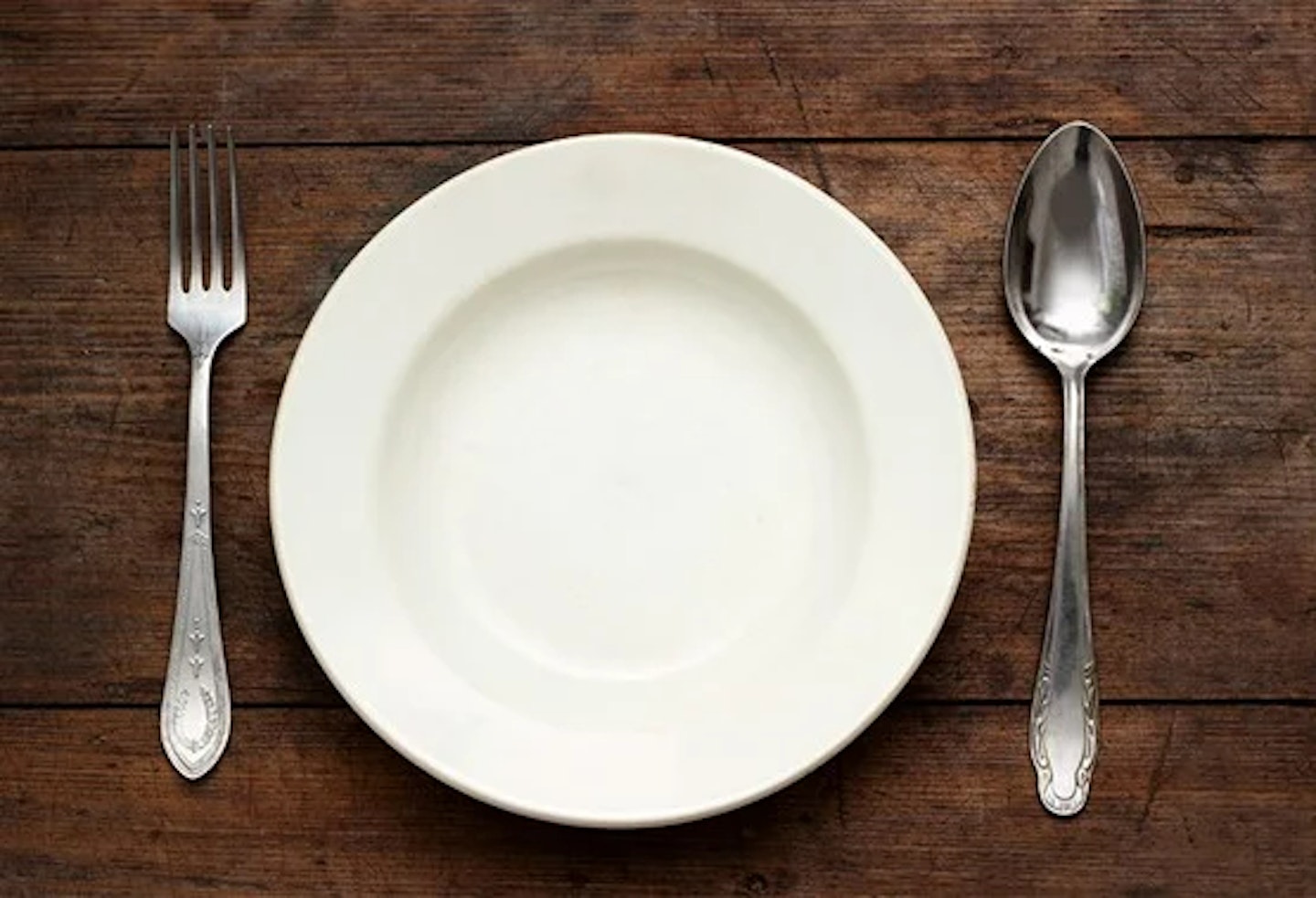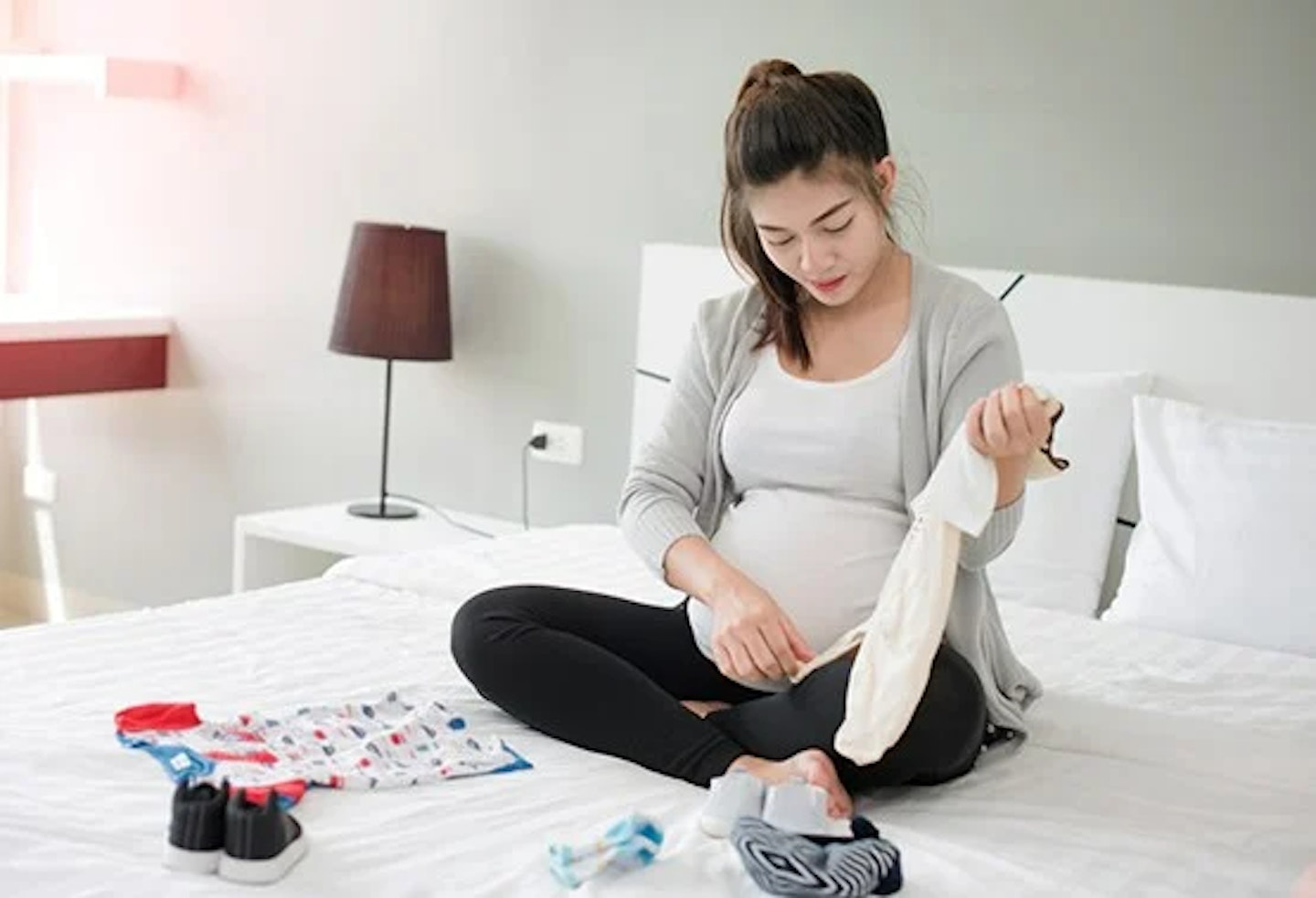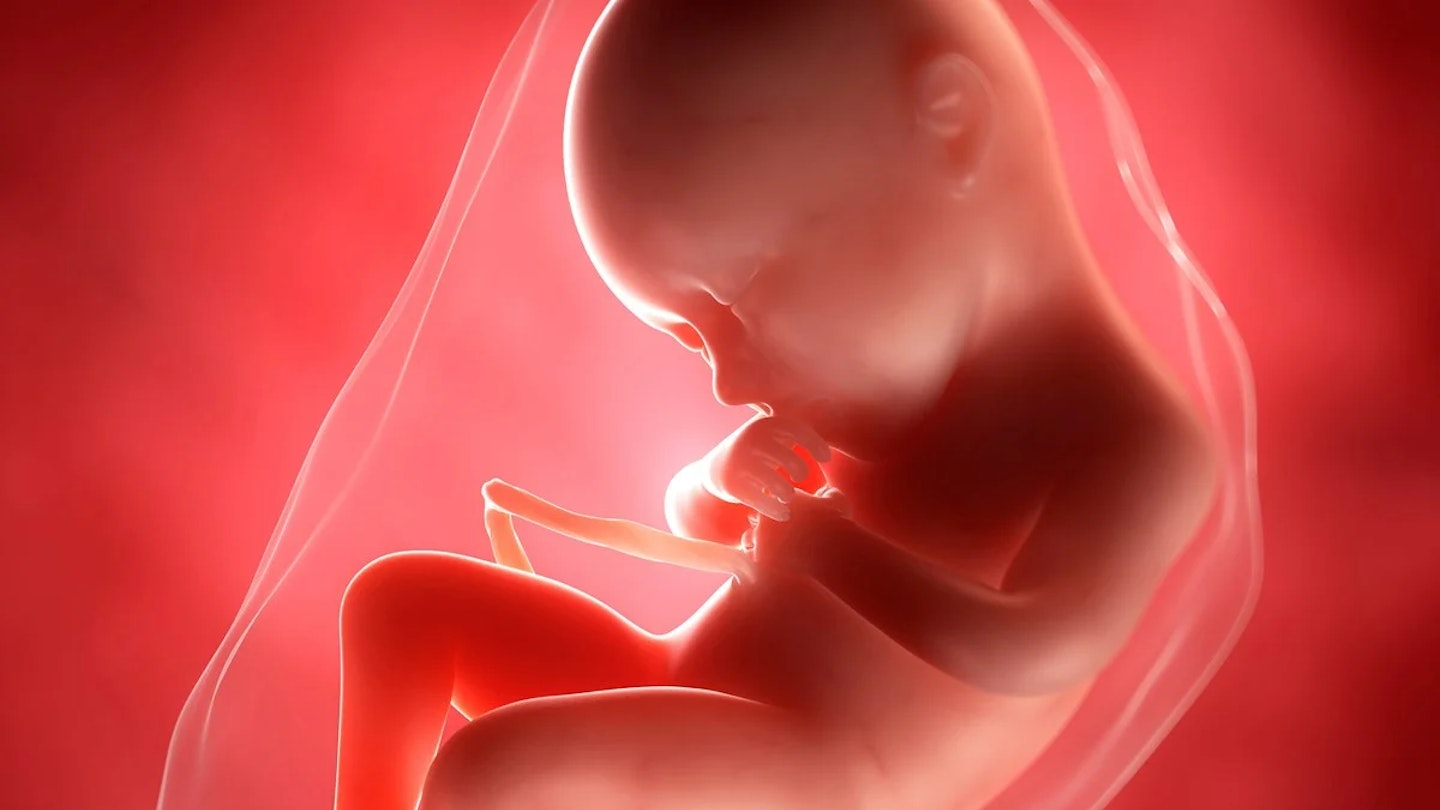At thirty-six weeks pregnant, your baby’s already got a personality, even though they are yet to be born. Things are feeling more real than ever. Here’s everything you need to know about your baby, your body, and any symptoms you might experience at 36 weeks pregnant.
How big is my baby at 36 weeks?
At the end of this week, your growing tot will be considered full-term – she’s now six pounds, and 18 and a half inches long. We couldn’t get to the end of your pregnancy without comparing your little one to a fruit, of course, so this week, they are the size of a papaya.

What’s my baby doing at 36 weeks?
Your baby’s head may engage any time now (which means it drops into your pelvis), and excitingly, some of their personality traits are already formed. Studies on the heart rate and movement of 31 foetuses before and after birth have shown that the more active they were in the womb, the grumpier they were when they hit the world. Eek! Let’s hope for your sake that your baby is one of the cheerful ones.
By now, your baby should be sleeping between 60 and 80% of the time, but if they aren't, when they are born they are more likely to sleep badly, too. Research suggests that it’s women’s hormones that influence personality traits in their babies. Their recommendation? That you take some time out before the birth so you can reduce your stress. Talking to your growing bump in a very soothing, calm manner can help too.
Your baby is getting ready for birth by shedding most of the downy hair that once covered their body, as well as the waxy substance that covered and protected their skin during their time in the womb, known as the vernix caseosa. Both of these substances will be swallowed by your baby, along with other secretions, which will result in a blackish mixture called meconium that will form the contents of her first bowel movements.
At the end of this week, your baby is considered early-term, with full-term considered to be between 39 and 40 weeks. Post-term is used to describe babies who are born after 42 weeks. Your baby is probably already facing head down, but if they are not, your doctor or midwife may apply pressure to your abdomen to get your baby to move into a head-down position.
While so many of your baby’s systems have developed well, one which still needs a bit of work is the digestive system. Your baby’s reliance on the umbilical cord for nutrition means that it will still take a year or two for this system to catch up.
Common symptoms to look out for
 1 of 7
1 of 71) Lightening
Yippee! Finally, a pregnancy symptom we’ve been looking forward to. As your baby drops into your pelvic cavity, the pressure on your diaphragm is released, and lightening happens. This means your stomach won’t feel quite so squashed anymore, and that you’ll be able to take bigger breaths and maybe even be able to eat more comfortably than before.
 2 of 7
2 of 72) Loss of appetite
Not feeling hungry? It certainly makes a change from those cravings earlier in your pregnancy, but now that your baby takes up so much room, it might be hard to eat a normal-sized meal. It’s often better to eat smaller meals more frequently rather than trying to handle large portions a couple of times a day.
 3 of 7
3 of 73) Mucus plug
Be prepared for losing your mucus plug. It happens at a different time for every woman, but can happen weeks, days or hours before labour begins, and looks like a yellow discharge tinged with blood.
 4 of 7
4 of 74) Nesting
Another lovely pregnancy symptom should be prevalent this week: the nesting instinct, where you’ll feel the urge to get organised for the baby. Enjoy these moments before life becomes hectic with a newborn, and make sure you’re preparing safely, avoiding anything risky like ladders, heavy lifting or overdoing it too close to labour. Take advantage of this desire to organise to make sure your baby bag is all packed, just in case the baby decides to show up a little earlier than expected.
 5 of 7
5 of 75) Pelvic pain
Thanks to increased joint flexibility, a heavier uterus and the pressure from your baby’s head, you might now be experiencing unpleasant pelvic pain. Treat yourself to a massage to relieve the symptoms, or try to take a warm bath or to do some pelvic exercises if you can’t quite treat yourself to a spa day every time the pain kicks in!
 6 of 7
6 of 76) Fatigue or increase in energy
Sadly, you'll either get one or the other of these opposing symptoms. You might not be sleeping well because you are full of nerves and anticipation leaving you tired during the day. Try and relax as much as you can and take a look at our falling asleep hacks to help you on your way. However, some mums find that they have a sudden burst of energy! This could be down to the lightening feeling you feel now your baby has moved away from your chest. Some women might find this increase in energy ramps up their sex drive. Sex is still safe even at late stages of pregnancy so enjoy it while you can before the little one comes.
 7 of 7
7 of 77) Dry itchy skin
By now your belly will be stretched so much that the skin will be feeling very dry and probably extremely itchy. Use soothing creams containing cocoa butter or Vitamin E for the best results. Or why not get your other half to rub the cream in and get him to talk gently the baby while he does it? It’s a really lovely way for him to bond with his developing baby.
What is my body doing at 36 weeks?
You might be starting to feel really exhausted again so try and rest as much as you can – it’s handy that around this time you’re probably about to go on maternity leave. But some lucky mums-to-be have a real burst of energy around now. If you want to, it’s totally safe to have sex. If you’re nervous about it, talk to your midwife for advice - and don’t be embarrassed, as they’ve most certainly heard it all before.
What to do this week:
If you haven't chosen a baby's name yet, it’s high time you started thinking about it! Make a list and discuss your favourites with your partner. Need some more inspiration? Why not use our baby name generator to find the name perfect for you? Alternatively, have a read of this years' top 25 baby girl names or the top 25 baby boy names.
This week, you may be able to express your first bit of breastmilk. This is known as colostrum and some mums find they can start colostrum harvesting in week 36 of their pregnancy in preparation for baby's arrival.
